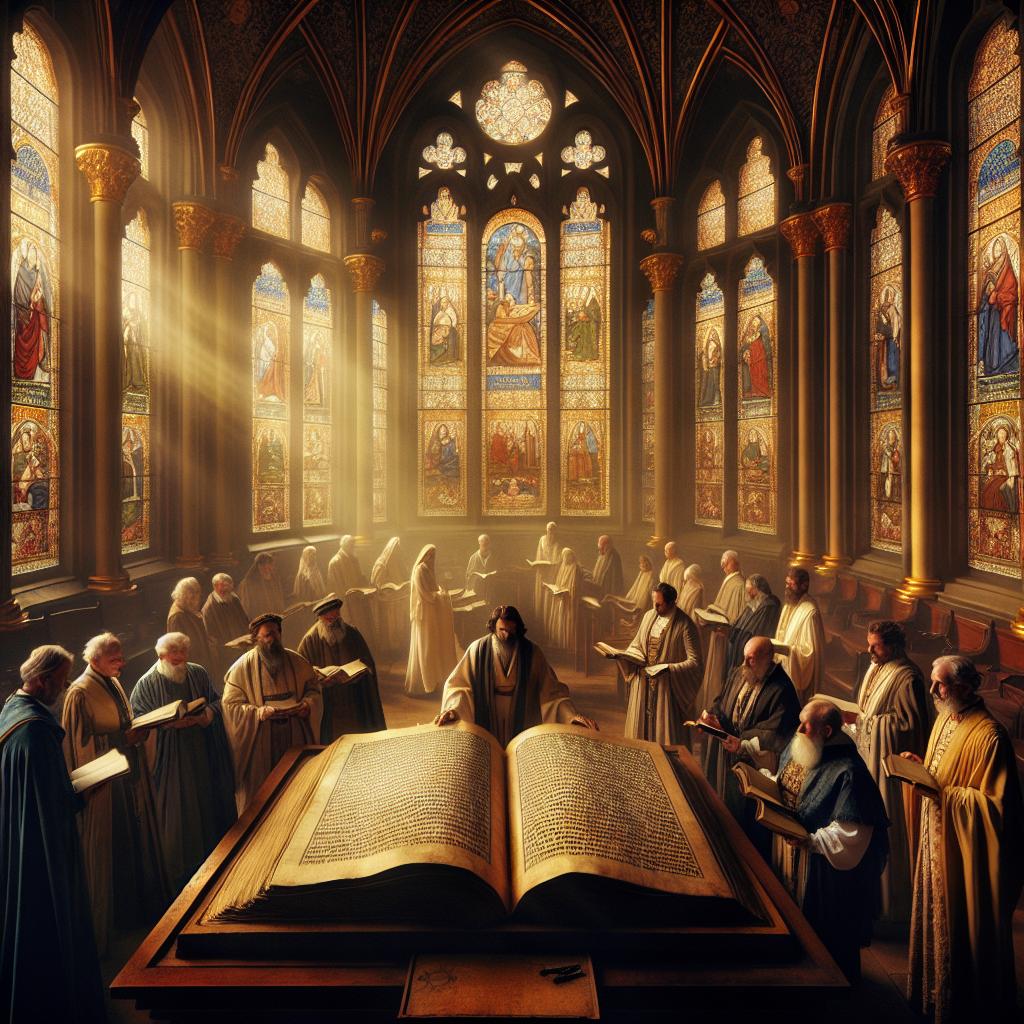
Embracing Genesis: Scholarly Insights on Christian Creation
Published: 15 April 2024
Scholars Who Support the Historicity of Genesis
The historicity of Genesis, particularly its account of creation, has been a topic of debate among theologians and scientists. However, there are numerous Christian scholars who uphold the view that Genesis should be understood as straightforward history. These scholars come from various theological backgrounds and possess expertise in fields such as theology, Hebrew, and church history. Their perspectives contribute to the ongoing discussion surrounding the interpretation of Genesis.
1. The Importance of a Young Earth
Randy Alcorn, a biblical studies author and president of Eternal Perspective Ministries, became a biblical creationist because he believed that the straightforward reading of the text indicated a young earth. Alcorn also emphasized that accepting creation, the fall, and redemption as real history is crucial to properly understanding the problem of evil.
2. The Clear Message of Genesis
Dr. Peter Barnes, a lecturer in church history at the Presbyterian Theological Centre in Sydney, argues that if God intended for us to understand the creation week as a literal week, it could not have been made any clearer in the text. He also highlights the theological implications of understanding that death only entered the world after Adam sinned.
3. The Plain Reading of the Text
Dr. Todd Beall, professor of Old Testament at Capital Bible Seminary in Lanham, MD, believes that if the inerrant Scripture states that God created the world in six literal days, then it should be accepted as such without trying to explain it away with more complicated interpretations.
4. The Connection Between Creation and Redemption
Joe Boot, senior pastor of Westminster Chapel in Toronto and president of Ezra Institute for Contemporary Christianity, emphasizes that playing games with Genesis undermines a coherent worldview. He argues that defending the faith and proclaiming the Gospel requires a clear stand on the creation issue.
5. The Historical Narrative of Genesis 1
Dr. Steven Boyd, professor of Old Testament and Hebrew at The Master's Seminary, provides a linguistic analysis that supports the historical narrative nature of Genesis 1. By comparing verb type frequencies in historical and poetic Hebrew texts, he concludes that Genesis 1 should be understood as describing God's creation in six literal days.
6. The Implications for Gospel Message
Dr. Joel D. Heck, professor of theology at Concordia University, Austin, Texas, defends the historicity of Genesis and its importance for understanding the Gospel message. He argues that the early chapters of Genesis are given to us as history and should be accepted as such.
7. The Cosmic Effects of Sin
Dr. Albert Mohler, president of the Southern Baptist Theological Seminary, acknowledges that it is not just the theory of evolution but also the acceptance of long ages that presents challenges to the Gospel. He points out that the Genesis account teaches that God's judgment on sin has cosmic effects, and accepting an old-earth position creates difficulties in explaining the presence of death, disease, and suffering before Adam and Eve.
8. The Consistent Understanding Throughout Church History
Various scholars throughout history have affirmed a literal understanding of Genesis. Dr. Martin Lloyd-Jones, a British pastor and Bible teacher, contended that the early chapters of Genesis are presented as history and should be accepted as such. Other theologians such as Augustine, Thomas Aquinas, and even Pope Pius X have also held to a young-earth creationist view.
Why This Matters
The perspective of these scholars is significant for several reasons. First, it demonstrates that there are theologians with theological qualifications who support a literal interpretation of Genesis. This challenges the notion that only scientists hold this position. Second, these scholars highlight the theological implications of accepting a historical Genesis—such as understanding the connection between creation and redemption and the impact of sin on the world. Finally, their views provide a historical context, showing that the understanding of Genesis as history has been widespread throughout church history.
Think About It
Considering the viewpoints presented by these scholars prompts us to reflect on the importance of a consistent biblical interpretation. If we believe in the New Creation and the redemptive work of Christ, it is essential to also affirm the historicity of the First Adam and the events described in Genesis. The acceptance of a literal Genesis enhances our understanding of God's character, His creation, and His plan for redemption. It challenges us to examine our own beliefs and consider the implications they have for our faith and worldview.
